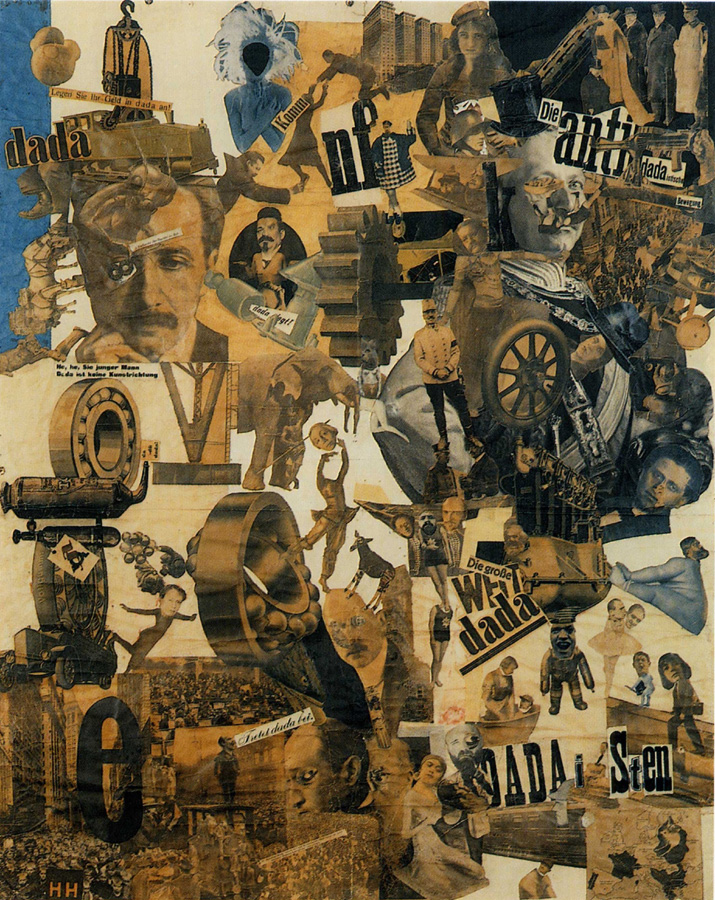
Hannah Höch, Cut with the Dada Kitchen Knife through the Last Weimar Beer-Belly Cultural Epoch in Germany, 1919
sometimes random things are the most beautiful
Somehow today, while writing another paper, I started thinking about an Art History class back in my first year at university. We were learning about Dada (Tristan Tzara, Marcel Duchamp and all his alter-egos, George Grosz and Francis Picabia etc.) and played some Dada games in class. One was 'Beautiful Corpses', when each person would draw a head, pass of the paper. The next would draw a torso and pass on the paper... etc.
Also, I discovered on my computer the dozens of Dadaist poems we wrote. They really are beautiful. We had a formula, like a literary version of 'Beautiful Corpses', someone would write a line, fold the paper (but leave the last word visible) and pass it along. Its amazing how they fit and conjour up some amazing imagery. I guess we were all art students, and would write in images.
Most people don't see how dada can be art. Which is a fair point, as dada is the 'non-art', working on the basis that nothing is art... a group of aesthetically-fixated pseudo-philestines. However, my thoughts are a bit different. Perhaps, springing out of the horror of WWI, their randomness and the non-sensical nature of their art was simply to reflect the non-sensical, random and unforgiving war-machine. Perhaps.
Either way, dada, in all its glory and anti-art-ism, is a wonderful enigma that I could spend days, weeks, months and years contemplating and writing about.... but I wont. Instead, I'll post Tristan Tzara's tips on writing poetry.
TO MAKE A DADAIST POEM
Tristan Tzara
"Take a newspaper. Take some scissors. Choose from this paper an article of the length you want to make your poem. Cut out the article. Next carefully cut out each of the words that make up this article and put them all in a bag. Shake gently. Next take out each cutting one after the other. Copy conscientiously in the order in which they left the bag The poem will resemble you. And there you are -- an infinitely original author of charming sensibility even though unappreciated by the vulgar herd."

No comments:
Post a Comment